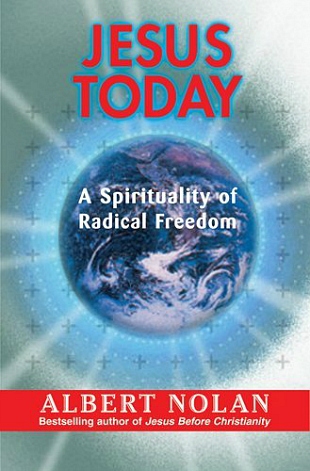"Not so long ago there was a tendency to separate the spiritual from the political, prayer from work for justice, mysticism from prophetic action. Those who experienced a hunger for spirituality seemed to have no thirst for justice. Politics and the struggle for liberation were felt to be thoroughly mundane and unspiritual. On the other hand, those who were fired with a passion for justice and freedom often thought that resorting to prayer and mysticism was escapist individualism.
"There were of course many remarkable exceptions — people who saw prayer and justice as two sides of the same coin. I think of Thomas Merton, Dorothy Day, Oscar Romero, Helder Camara, Dorothee Soelle, Mahatma Gandhi, and numerous others of different faith traditions in South Africa and elsewhere. What interests us here is the powerfully simple way in which prophecy and mysticism form an inseparable whole in the life and spirituality of Jesus.
"Today we call it the mystico-prophetic tradition. This term is being used more and more frequently in Christian theology and spirituality, not only as an attempt to overcome the antagonisms between the two in the recent past, but also as a way of recognizing that traditionally, at least in the Judeo-Christian tradition, there was no such division or antagonism. Prophets were mystics and mystics were prophets. Any idea that one could be a prophet caning for justice and social change without some experience of union with God was unthinkable. Equally unthinkable was any idea that one could be a perfectly good mystic without becoming critically outspoken about the injustices of one's time. We often forget that mystics from Basil the Great to Catherine of Siena spoke out boldly against the injustices of the rich, of the political powers, and of church leaders in their times.
"These were people who took Jesus seriously and, like Jesus himself, they were footed in a mystico-prophetic spirituality."
